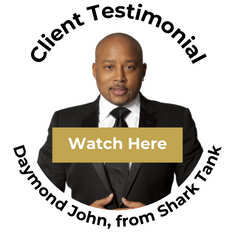

How to Discourage Lawsuits
Big Mortgages Discourage Lawsuits
If you have exposed wealth, you are an easy lawsuit target. Any lawyer can do an instant electronic asset search and financially profile you. This online asset search, in seconds, will reveal whatever real estate, business, auto, boat, etc. you now own — or have ever owned. Asset searches also disclose mortgages or liens against your property. You want it to appear that everything you own is mortgaged to the hilt. In our debt-ridden society, it is not unusual for people to owe as much or more than they own.
Nothing discourages prospective litigants faster than finding that a would-be defendant is mortgaged to the eyeballs. You can own millions in assets, but when they are fully mortgaged, you are a poor lawsuit candidate. Litigants want assets with equity. When your assets can be claimed first by other creditors, you are paper poor. Poverty becomes negotiating power.
Get a Line of Credit
When should you mortgage yourself to the hilt? Always keep your real estate fully encumbered. Keep mortgages against your property for as long as you own it; even if you must periodically refinance your mortgages to cover the equity that you build as your property increases in value. You may say, "But I don't want a big mortgage. Why pay interest on a loan that I don't need to protect myself against a lawsuit that may never happen?"
Refinancing your real estate to strip the equity may not seemingly make financial sense, even when it makes legal sense. But a home equity loan or line of credit always makes sense. If your home is worth $200,000 and has no mortgage, you might arrange for a $150,000 home equity loan or line of credit against your home. You owe your lender nothing until you actually draw down your credit line. You would do this only when you are sued. Still, a prospective litigant searching for your assets would see only $50,000 equity in your home because the $150,000 mortgage would be public record. You are then a considerably less attractive lawsuit candidate because you have reduced your visible net worth. You lower your exposure to future lawsuits, and gain leverage to negotiate a lower settlement if you do get sued.
If you own any real estate, get an equity loan to cover as much of your property equity as possible. Then arrange for standby second or third mortgages to encumber whatever remaining equity is still exposed. You'll pay a few dollars for loan fees, but this is sound lawsuit protection.
Encumber Everything You Own
Encumber your real estate immediately because you want a poverty profile to discourage lawsuits. However, once you are sued (or threatened with a lawsuit), you can still encumber every asset. Remember, any asset can be security for a loan.
Lien your second homes, investment properties, stocks, bonds, art, jewelry, collectibles, business ownership, vehicles, retirement accounts, and so forth. You can lien your assets separately or give a blanket lien to one creditor. Similarly equity strip your business or professional practice. Your goal is to leave no asset unencumbered and exposed.
Find Friendly Lenders
How do you find a lender to equity strip your assets? Countless asset-based lender(s) lend money and lien assets as collateral. For example, banks give home equity loans and refinance homes. Other lenders refinance businesses, autos, or boats. You can borrow and pledge as collateral any asset to virtually any lender.
With good credit, you can borrow about 80% of the value of your assets from conventional lenders (banks, finance companies, etc.). With poor credit, you can still find hard money lenders who will charge you more interest, but paying steeper finance charges is preferable to losing your assets in the lawsuit.
You understand the concept of equity stripping for protection. Your problem is in its implementation. You — or your advisors — may not know how, or where, to find the right lenders. Or you may not know about the many possible strategies to defensively position your assets.
The Presser Law Firm, P.A. engineered a number of creative ways to structure secured loans to maximize our client's protection. We have arranged loans and debt-shields for even the poorest credit risks. Our financing arrangements have involved third party guarantees or we have used loan proceeds as collateral for a back-to-back loan, or we obtain loans from international lenders. We have encumbered assets and estates worth many millions through complex insurance/financing arrangements − financial deals which fully encumbered all our clients' assets.
Debt-shielding is usually simpler. Banks, finance companies, and other conventional asset-based lenders can usually handle it. A family member or affiliated company may become your lender if you have modest assets to protect.
A debtor's family may encumber the debtor's property. A close relative is nevertheless a legally distinct party. Liens or security interests between related parties are enforceable if fair consideration was given for the loan. But, a loan from family members or an affiliated party will make a fraudulent transfer claim more likely because insider loans are more closely scrutinized. If a court determines that your loan is a sham or not adequately supported by fair consideration, the court will cancel the mortgage and expose your assets.
Your spouse can encumber your separately owned property in states that follow common law property rules. Community property states allow property owned and held separately to be granted as security to a spouse. Although one spouse may legally encumber the other's assets, state fraudulent transfer laws frequently void such loans granted after the claim arose. Or an affiliated business can lien your personal property; but, this lien will also less likely be upheld by the courts if you own or control that business.
Nevertheless, no rule prevents you from forming a corporation, limited partnership, or limited liability company and granting that entity a mortgage or security interest against your other assets. This mortgage may be challenged in court, but an asset search would nevertheless not reveal your relationship to that entity. A friendly lien held by your entity (or one that you directly or indirectly control) may give you some level of protection to the extent it deters a plaintiff seeking unencumbered assets to target.
An aggressive Asset Protection specialist may use other creative planning techniques to reduce the visibility of their clients' ownership in a lender entity. Or you may own a minority share in the business that holds the mortgage. Own only a minority interest, and you wouldn't control the corporation or LLC. The lien is then more likely to survive a challenge.
You'll need the right professional for guidance here. More complex cases can utilize several levels of customized foreign trusts, corporations, LLCs, charitable organizations, private foundations, or other entities. Each, in its own way, provides one more layer of privacy, anonymity, and protection. Frequently, foreign entities are mere shells, or IBCs or LLCs with neither shareholders nor capital. Only through intense investigation can a creditor distinguish a shell entity from an actual operating foreign entity. A foreign shell entity may give you reasonably good protection when used to encumber your property. However, for more sound protection, your foreign entity must be prepared to document and defend your mortgage before a U.S. judge who must determine priorities among competing lien holders or judgment creditors.
The success behind this type of arrangement lies in the absolute privacy only available from certain international financial centers that would deny a plaintiff's attorney access to records. The complexities of multiple layer foreign entities can completely sever the relationships between the U.S. property owner and the foreign IBC or LLC that holds a lien against this property.
On the other hand, you can sometimes create your friendly lien simply by giving a mortgage to a relative, friend, or favored creditor to whom you owe money. What is important is that if your lien is later challenged you can show that you do owe the money and that you indeed owe an enforceable debt.
Friendly Judgments
Not every mortgage or lien filed against your property need be consensual. For example, a relative, friend or some other amicable adversary may have a claim against you. If they should sue you and win a judgment before a hostile creditor wins their judgment; then your friendly creditor would have priority claim to your assets. Friendly lawsuits can range from defamation to breach of contract. But, it can nevertheless result in a massive judgment against you, which would effectively blockade your assets against a subsequent judgment creditor who may be less friendly. This strategy, however, requires a claim with substance. Do not use the courts to perpetrate fraud on your other creditors.
Yes, You Can Lose Everything!
You may think that your wealth is safe and that you don't need protection. But don't delude yourself and accept reality — for every 60 minutes you spend making money, spend 60 seconds thinking about how to protect it!


-
 Schedule an Educational Presentation
Schedule an Educational Presentation -
 Asset Protection Quiz
Asset Protection Quiz -
 Read Our Complimentary Books
Read Our Complimentary Books


